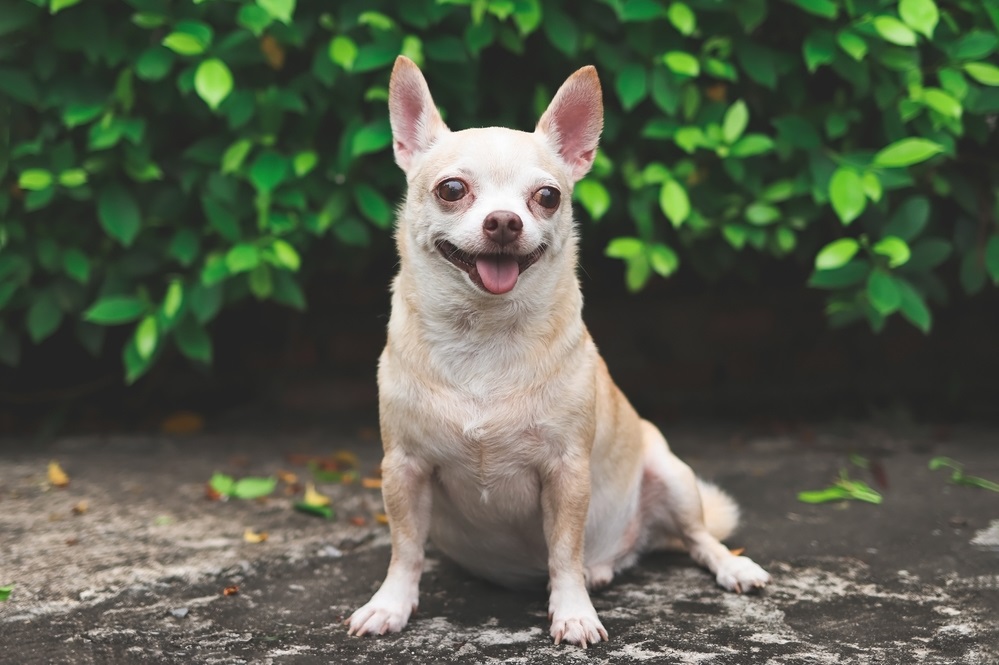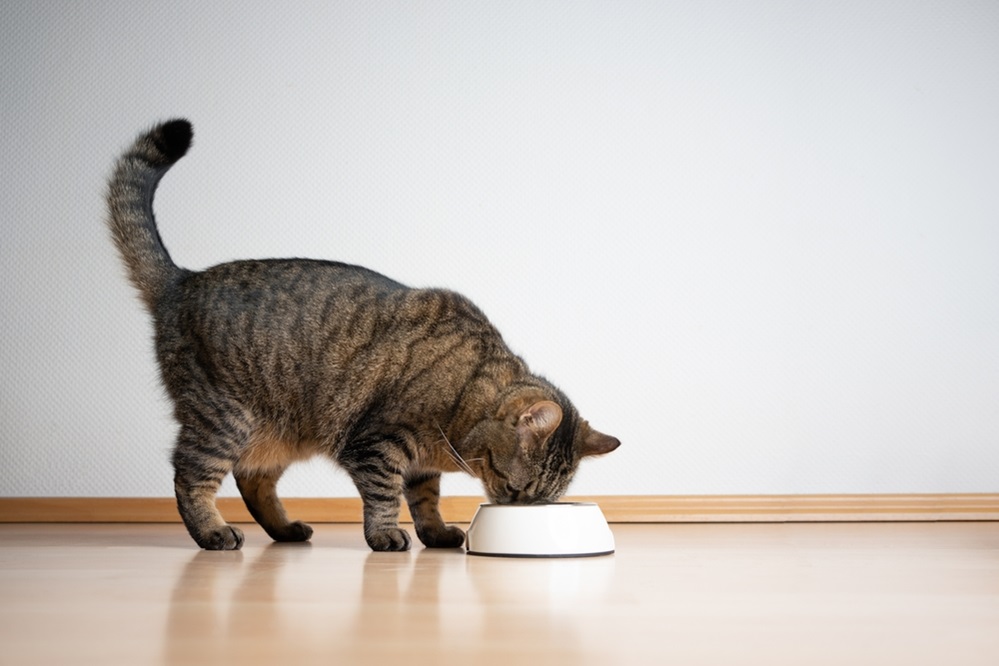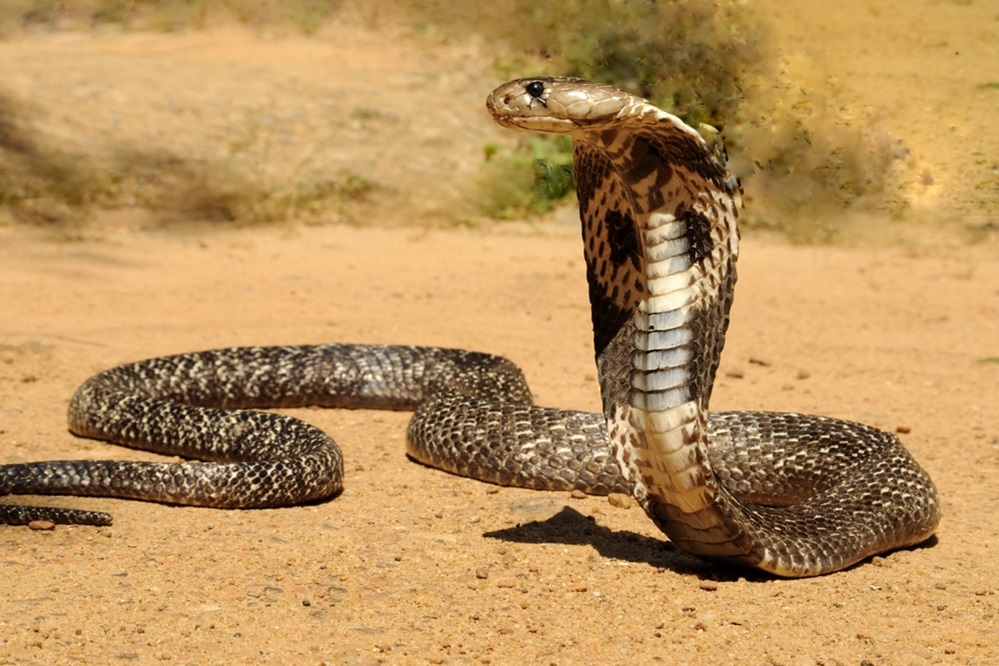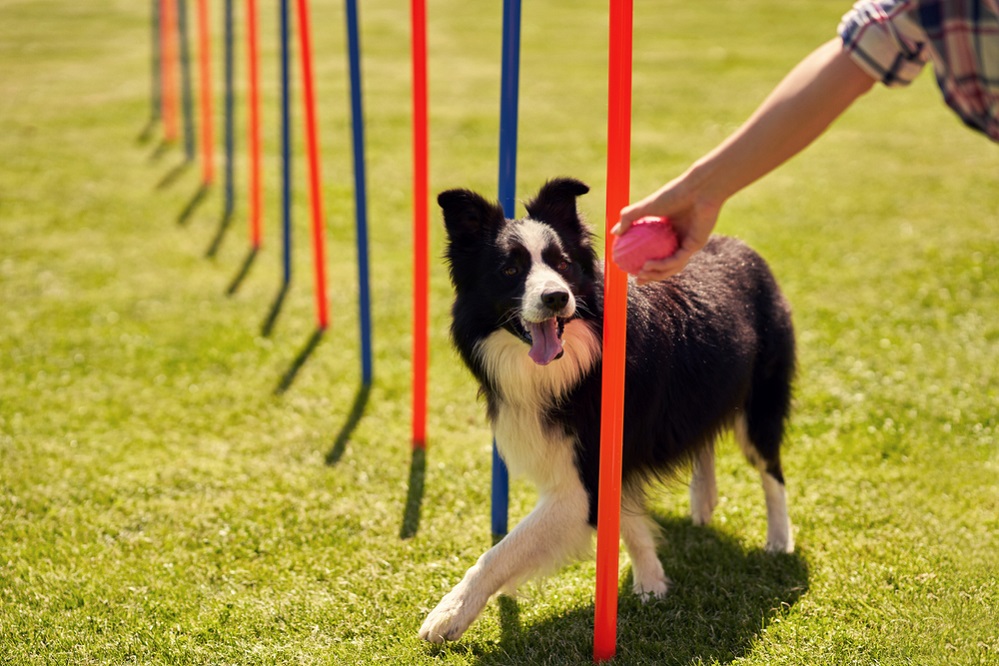America’s tiny treasure the Chihuahua dog breed is known for its big personality and petite size which is why it has captured the hearts of many in the United States. They are full of charm and spunk even though they are pint-sized pups making them a popular choice for dog lovers across the United States.
Intriguing, endearing, and surprisingly robust, the Chihuahua offers a unique blend of personality, loyalty, and beauty in a compact package. Their ability to adapt to their owner’s lifestyle while maintaining their distinctive charm makes them an enduring choice for dog lovers seeking a lifelong companion with a strong character and an even stronger heart.
Whether as a lapdog, a travel companion, or a family pet, the Chihuahua stands out as a breed that captures the essence of canine companionship in its most petite, yet powerful form.

History of the Chihuahua Breed
With a rich history that dates back thousands of years, the Chihuahua is believed to be one of the oldest dog breeds in the Americas, with a history that dates back over 3,000 years as some historians have traced their lineage to the Techichi dog, a small companion dog favored by the ancient Toltec civilization. When the Aztecs conquered the Toltecs, they embraced the Techichi into their culture, further enhancing the breed’s status as a cherished companion.
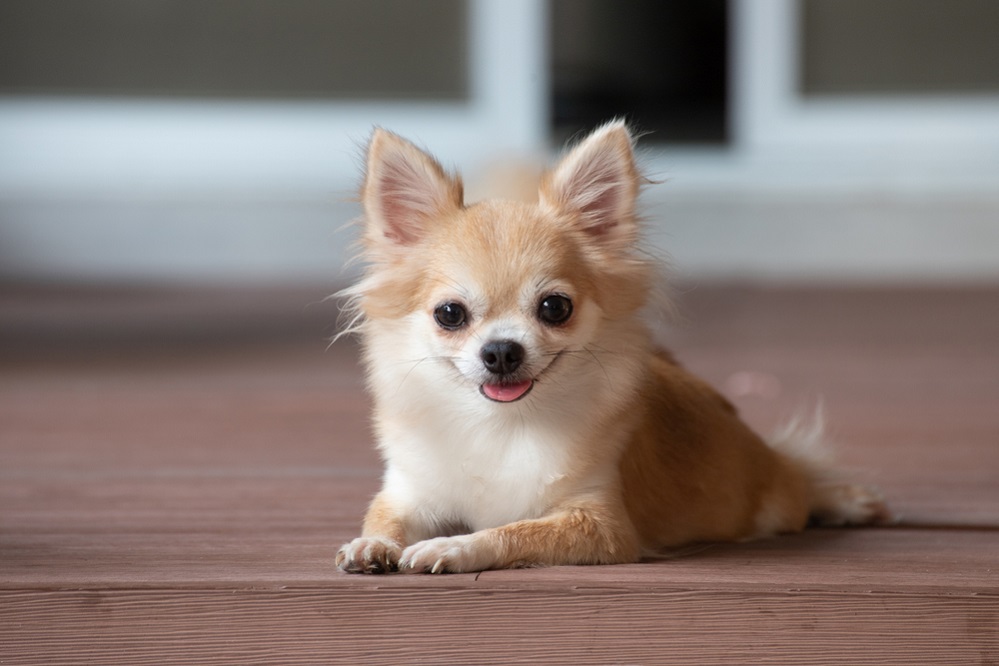
These dogs are named after their place of origin which is the Mexican state of Chihuahua where the earliest specimens of the breed were discovered. They were highly revered by the ancient Aztecs and Toltecs, who believed that they could guide their owners to the afterlife and that they possessed mystical powers which is why they were often sacrificed and buried with their owners.
Another origin theory of the Chihuahua is that the Chihuahua is descended from a breed of small Chinese dogs that were brought to the Americas by Spanish traders. These dogs were then crossbred with native Mexican breeds to produce what is now known as the modern-day Chihuahua.
Despite its origins, the Chihuahua quickly became a favorite dog breed among the Mexican people, prized for its charming personality, loyal nature, and small size. The Chihuahua’s popularity continued to grow, and by the 19th century, they had made their way to the United States, where they were embraced by celebrities and dog lovers.
The American Kennel Club Officially recognized the Chihuahua breed in 1904, further solidifying its status as a beloved companion animal. Since then, the Chihuahua has remained a popular breed.
For further information on the history of the Chihuahua breed, you can visit the Chihuahua Club of America website here.
Characteristics of the Chihuahua Breed
Chihuahuas are known for their tiny size however here are some major characteristics of the Chihuahua breed that one should look out for:
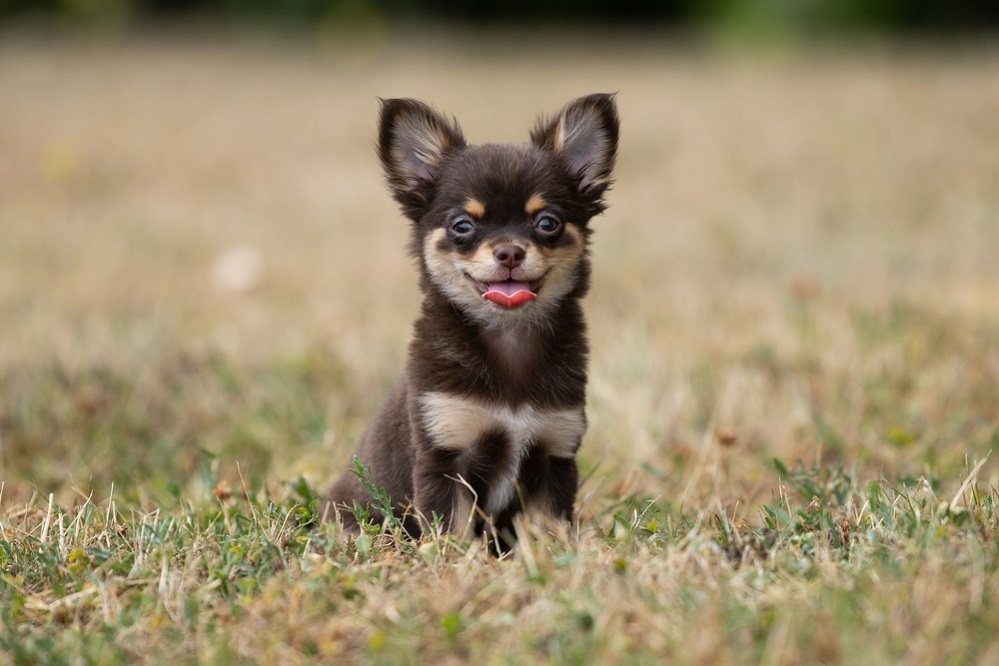
Size
In terms of dimensions adult Chihuahuas typically stand about five to eight inches tall at the shoulder. When it comes to weight, they are equally lightweight, with most Chihuahuas weighing between two to six pounds.
However, it is not uncommon to encounter Chihuahuas that are slightly larger, with some individuals reaching up to ten pounds, especially if they are not carefully bred or if they have gained excess weight due to over feeding.
The breed standard set by the American Kennel Club (AKC) emphasizes that Chihuahuas should not exceed six pounds in weight, highlighting the breed’s characteristic small size. This limit is set to preserve the qualities that make the Chihuahua unique, including their dainty appearance and agility.
Coat
The Chihuahua breed boasts a diverse range of coat types, allowing potential owners to choose a pet that not only matches their personality but also their lifestyle preferences. Chihuahuas are primarily distinguished by their coat length, which comes in two main varieties:
Smooth Coat Chihuahua
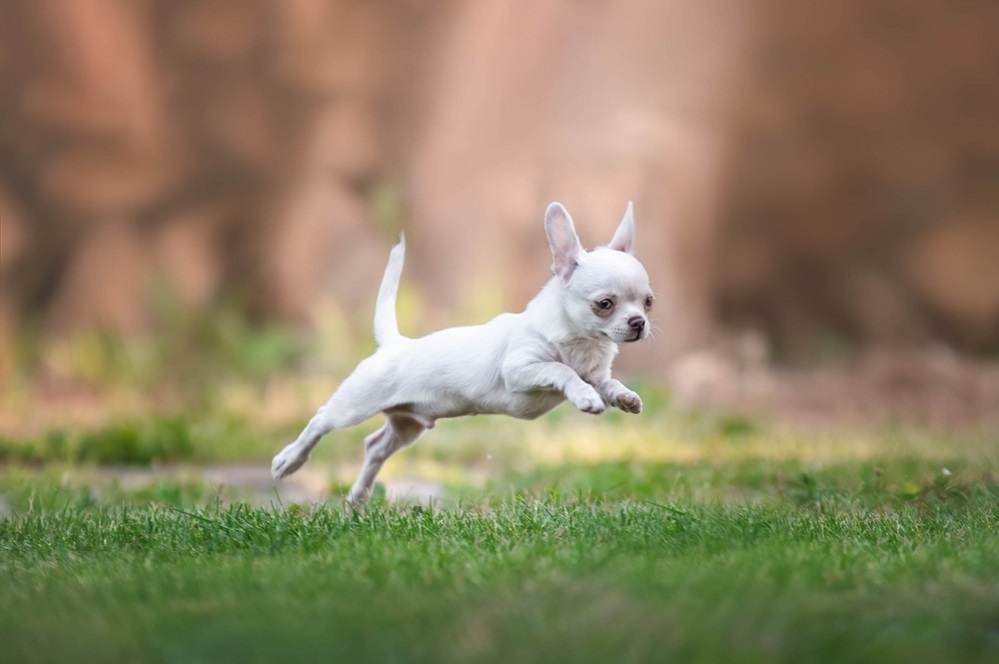
The Smooth Coat (short-haired) Chihuahua have short, close-lying fur that is glossy and soft to the touch. This variety of Chihuahua is particularly appreciated for its low maintenance grooming needs.
Despite their short hair, they do shed, but regular brushing (about once a week) can help minimize hair loss and keep their coat shiny. Their sleek coat makes them slightly less prone to getting cold, but they may still require extra warmth in cooler climates, such as a dog sweater or blanket.
Long Coat Chihuahua
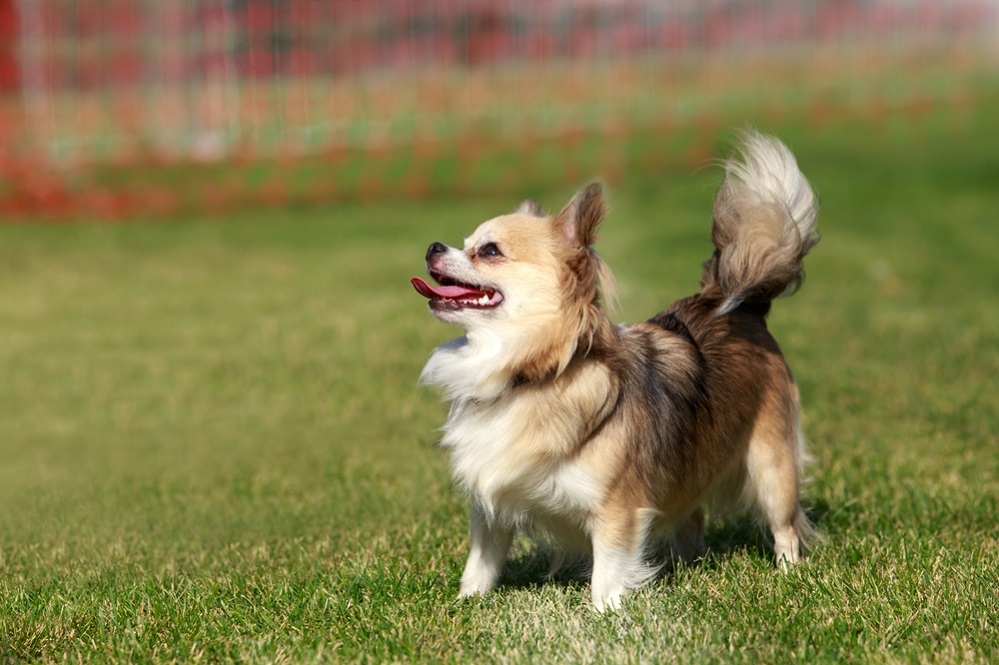
The Long Coat (long-haired) Chihuahua, on the other hand, feature a soft, fine guard layer of fur that can be either straight or slightly curly. Underneath, they have a soft, downy undercoat, which gives them a fluffier appearance.
This variety requires more grooming to prevent tangles and mats, including regular brushing (two to three times a week) and the occasional bath (about once a week). Despite the longer fur, they do not necessarily shed more than their short-haired counterparts, but their shedding can be more noticeable.
The longer coat offers a bit more protection against cold weather, though they might still appreciate a cozy sweater in winter months for that extra protection.
In addition to coat length, Chihuahuas come in a wide array of colors and patterns, ranging from solid colors such as black, white, fawn, and chocolate, to bi-color, tricolor, and even more exotic patterns like merle.
The American Kennel Club recognizes a variety of colors and markings for both Smooth and Long Coat Chihuahuas, making them one of the most diverse breeds in terms of appearance.
Appearance
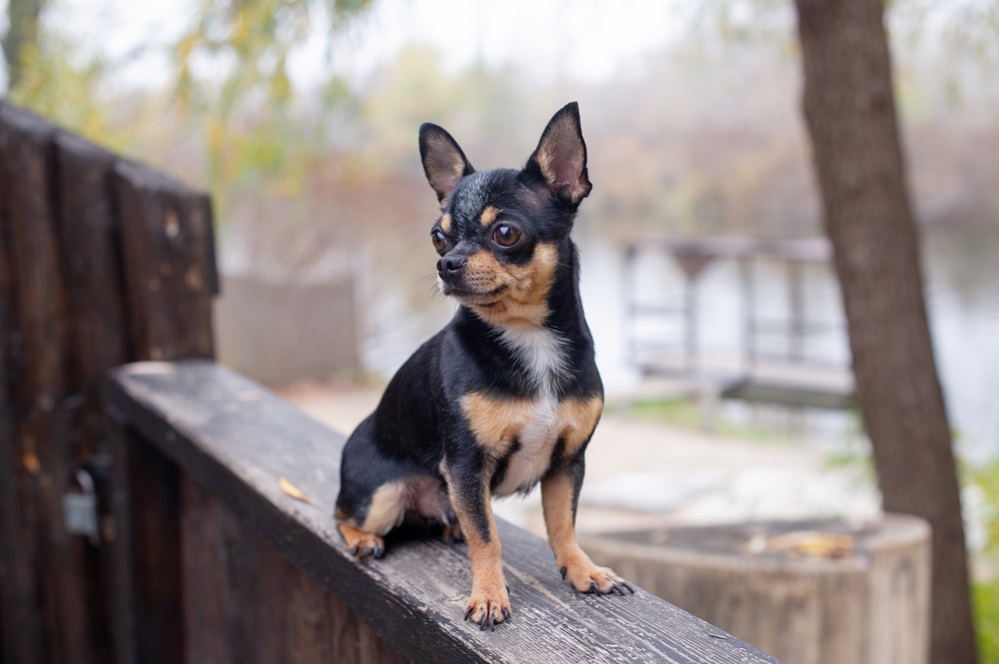
This breed stands out not only for its diminutive stature but also for a variety of unique physical traits that make it instantly recognizable and immensely popular among dog lovers.
One of the most distinctive features of the Chihuahua is its head shape, which can be broadly categorized into two types: the “apple head” and the “deer head.” Apple-headed Chihuahuas have a rounded, domed skull with close-set eyes and a short, pointed muzzle, making their head resemble the shape of an apple.
This variety is often considered the breed standard. Deer-shaped Chihuahuas, on the other hand, have a flatter skull, wider set eyes, and a longer muzzle, resembling the facial structure of a deer. Both types possess a charm and appeal unique to the breed.
The tail of a Chihuahua is another notable feature, carried either in a loop over the back or a semi-curl, with the tip touching the back. The tail’s length and carriage can vary, but it often reflects the dog’s mood and level of excitement.
Temperament and Behavior
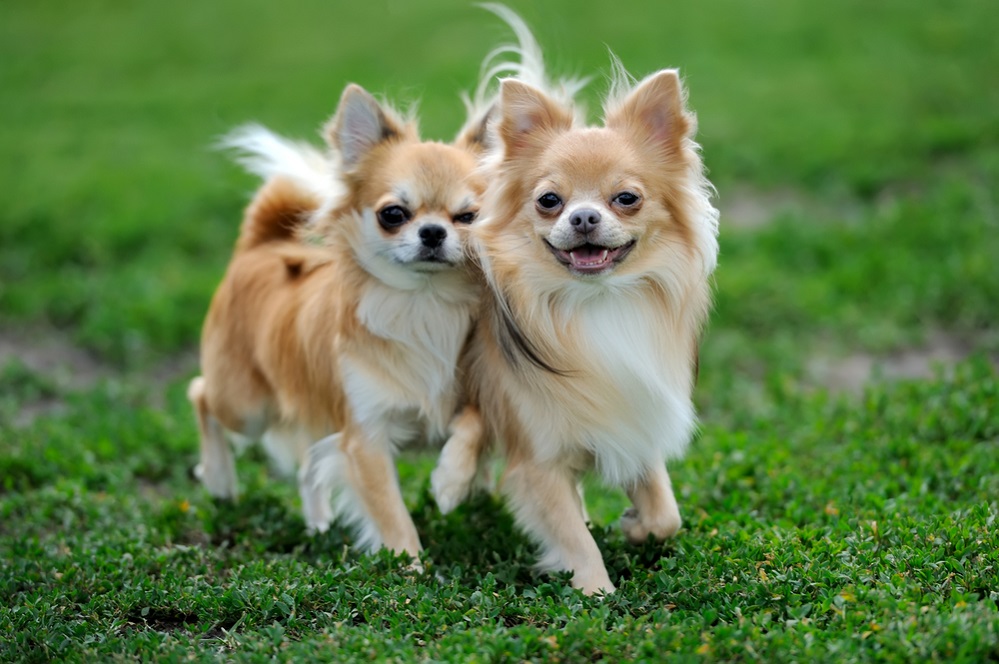
Chihuahuas are often described as “big dogs in small bodies” because they have a stubborn personality and confident nature. Which can manifest as bossy behavior or overly aggressive.
They are known to be intelligent and alert and are also quite protective, fiercely loyal and affectionate towards their owners often forming strong emotional bonds with their family members. This is evident with their attention seeking behavior as Chihuahuas thrive on attention and can become quite demanding if they feel ignored. They may whine, act out, or even bark to get their owner’s attention.
However, early socialization from a young age is imperative to prevent any issues in the future when they are older as they may also be very wary of other dogs and strangers.
Care Requirements
Despite their small size, Chihuahuas are energetic dogs that require regular exercise even though they are generally a healthy breed. However, caring for a Chihuahua requires attention to their small size, energy levels, and potential health requirements. Here are some key care requirements to look out for in this dog breed:
Exercise
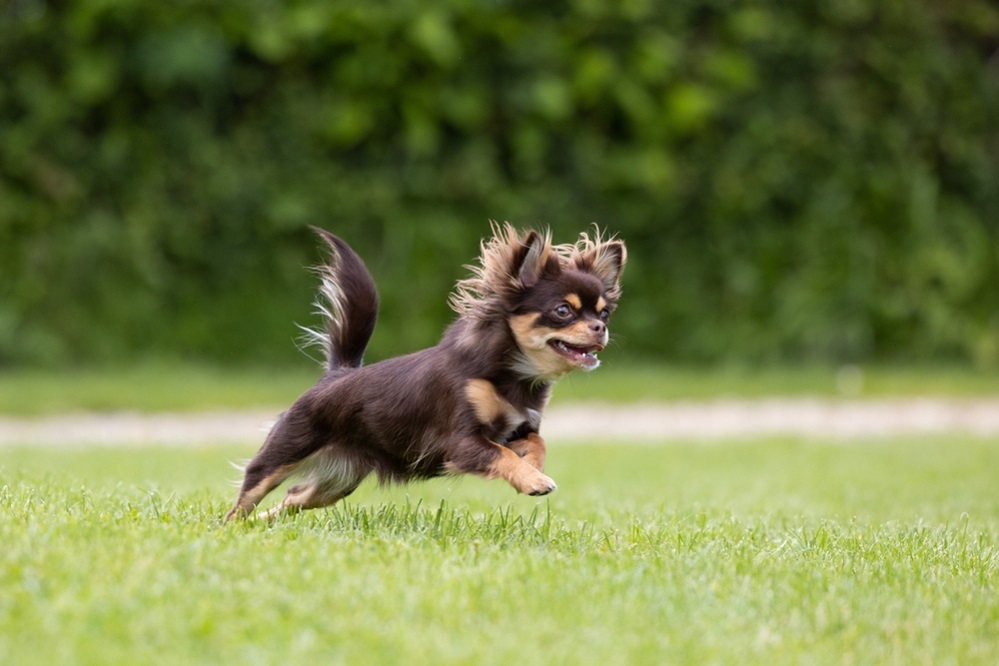
Playtime for the mental stimulation, daily walks, and a balanced diet are important to keep them happy and healthy. However, care should be taken not to overexert them due to their small stature. It is also important to keep an eye out for them and supervise them around larger dogs and ensure that they are safe from hazards in their environment as Chihuahuas are vulnerable to injuries.
Temperature Regulation
Additionally, during the winter months, Chihuahuas my require extra warmth as they are sensitive to the cold weather and due to their small size, they are best suited to indoor living and should be provided with a comfortable environment.
Grooming
When it comes to grooming, Chihuahuas are low maintenance dogs. Though long coated Chihuahuas may need more frequent grooming to prevent their hairs from matting as compared to their short coat counterparts who require minimum brushing.
Bathing
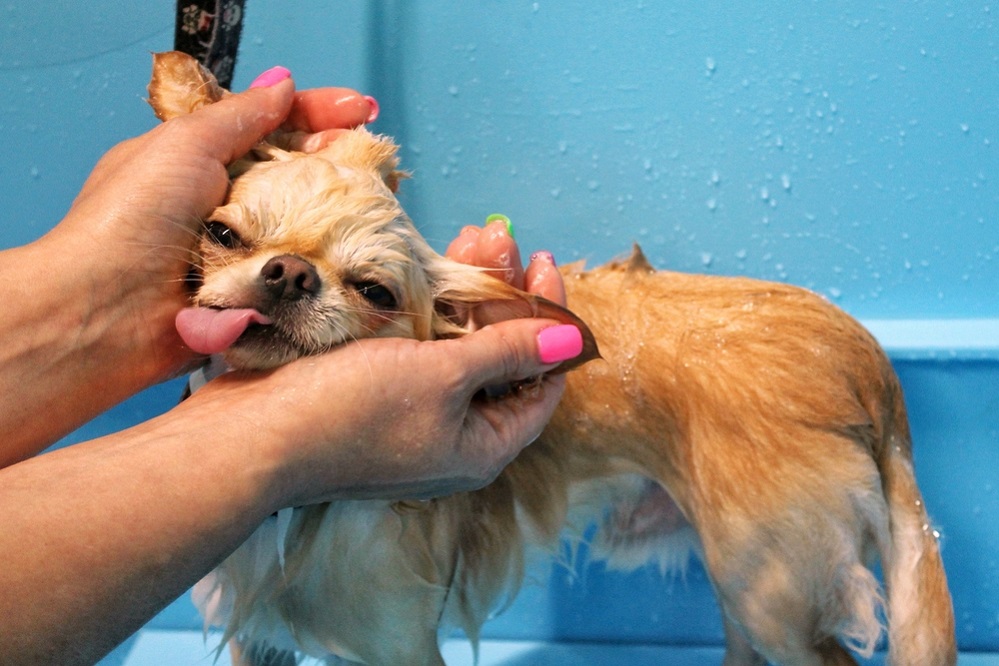
Chihuahuas are generally clean dogs and do not require frequent baths therefore, a bath every one to two months is perfectly acceptable. Using a mild dog shampoo to avoid drying out their skin.
Training
Training Chihuahuas requires consistency and patience because they are a smart breed, but they can also be stubborn. Therefore, positive reinforcement techniques work best with Chihuahuas because they respond well to treats and praise. Basic obedience training is also recommended to ensure that they are well behaved companions.
Nutrition
Chihuahuas require a high-quality dog food appropriate for their size, age, and activity level. Overfeeding them will lead to obesity, and this can ultimately lead to health issues.
Health Considerations
Chihuahuas are prone to certain health issues like all dog breeds. These can include:
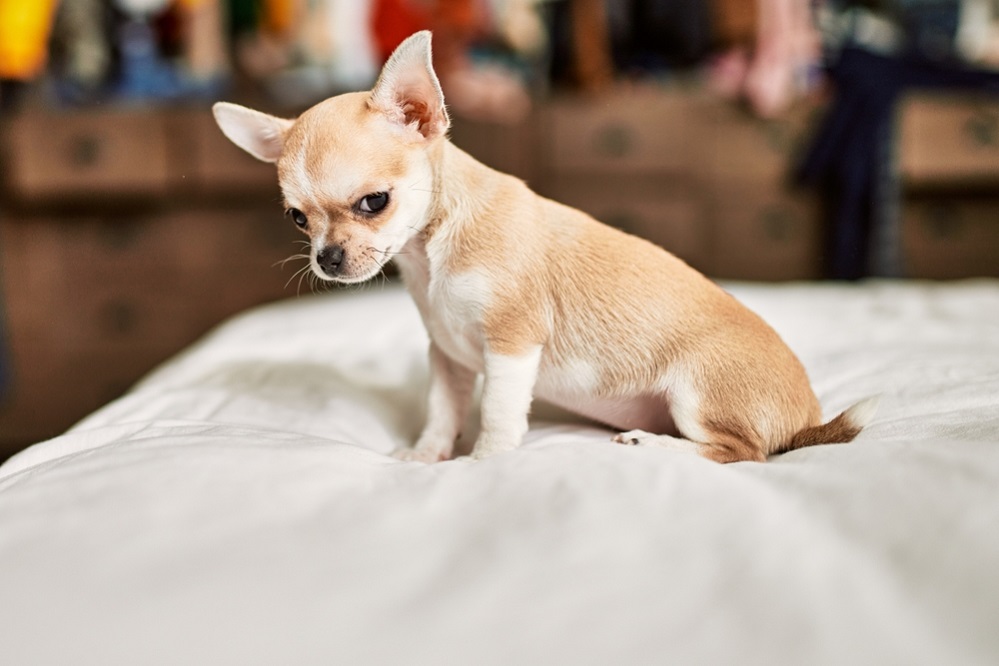
Dental Problems: Regular teeth brushing is essential every two to three weeks using a dog specific toothpaste to prevent gum disease and tartar buildup.
Heart Disease: Chihuahuas can develop heart conditions, such as mitral valve disease, which affects the heart’s ability to pump blood effectively. Regular veterinary check-ups can help monitor the Chihuahua’s heart health.
Hypoglycemia: Also known as low blood sugar is common in Chihuahuas especially for puppies. Therefore, feeding them small, frequent meals throughout the day can help prevent it.
Luxating Patella: A condition where the kneecap dislocates from its normal position. Chihuahuas are prone to this condition, which can cause difficulty in walking or lameness and surgery may be required in severe situations.
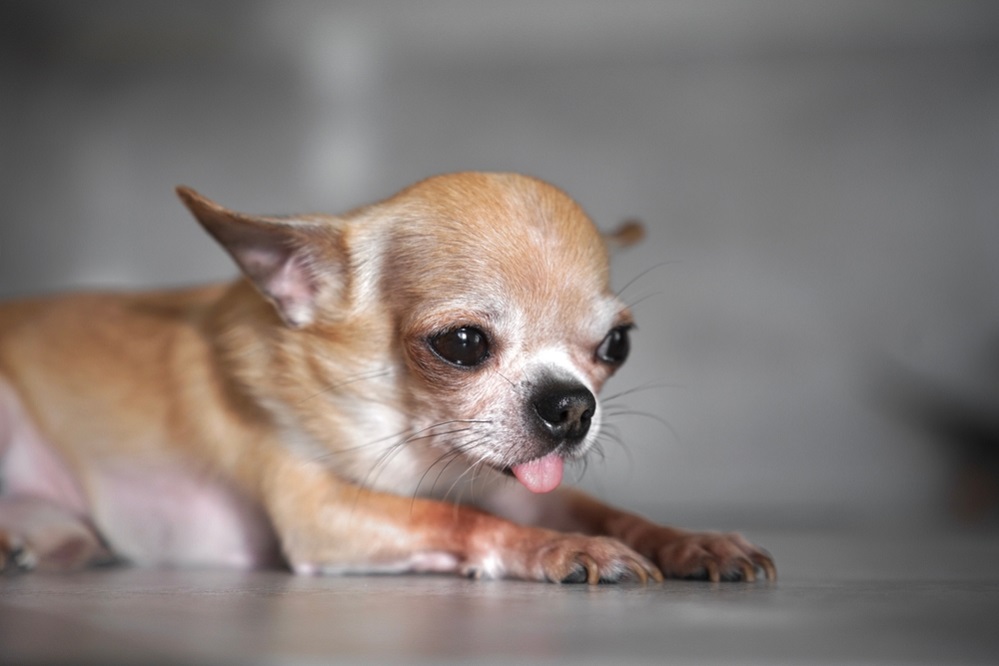
Tracheal Collapse: Chihuahuas have delicate tracheas that can collapse, especially if they pull on a leash too hard or are overweight. Using a harness instead of a collar can help prevent tracheal collapse.
Eye Problems: Chihuahuas are prone to eye problems, such as glaucoma, progressive retinal atrophy, and cataracts.
Allergies: Chihuahuas can develop allergies to pollen, food, or other environmental factors. Symptoms may include skin irritation, ear infections, and itching. A veterinarian can help identify and manage these allergies.
FAQs
Are Chihuahuas good with children?
Chihuahuas can be good with children, but they may not tolerate rough handling. Therefore, it is important to teach children on how to have a gentle and respectful interaction with them.
Do Chihuahuas bark a lot?
Chihuahuas are known to be vocal dogs and may bark to alert their owners of any perceived threats or when they feel excited. Proper socialization and training can help reduce on excessive barking behavior.
How long do Chihuahuas live?
Typically, Chihuahuas live between 12 and 20 years as they have a relatively long lifespan as compared to other dog breeds.
Are Chihuahuas good apartment dogs?
Yes, Chihuahuas are well suited for apartment living due to their size and low exercise requirements. However, they still need regular walks and playtime to stay happy and healthy.
Do Chihuahuas get along with other pets?
Chihuahuas can get along well with other pets if they are properly socialized. However, they may be wary of larger dogs and may exhibit dominant behavior towards other small animals.
Are Chihuahuas good watchdogs?
Chihuahuas can make good watchdogs due to their alert and vocal nature. They are often wary of strangers and will bark to alert their owners of any potential threats.
Are Chihuahuas good for first time dog owners?
Chihuahuas can be a good choice for first time dog owners, especially those willing to invest time in training and socialization. They require less physical exercise but do need attention, affection, and mental stimulation.
How can I adopt a Chihuahua?
Chihuahuas can be adopted from animal shelters, rescue groups, or through reputable breeders. Researching and connecting with local Chihuahua specific rescues can also be a great way to find a dog in need of a home.
How can I tell if my Chihuahua is overweight?
An overweight Chihuahua may have no visible waist and no distinction between the chest and stomach when viewed from the side. A veterinarian can provide the best guidance on the ideal weight for a Chihuahua.
Can Chihuahuas be left alone?
Chihuahuas are very social and can struggle with being left alone for long periods. They are prone to separation anxiety, which can lead to destructive behavior and excessive barking.
Conclusion
The Chihuahua dog breed may be small, but has a rich history, big personality and is a lifelong companion. So, whether you are looking for a pint-sized watchdog or a loyal friend, the Chihuahua is sure to steal your heart. They thrive in environments where they can be close to their owners, whether that is tagging along on errands or curled up on a lap in a city apartment.
Despite their many appealing qualities, prospective Chihuahua owners should be aware of the breed’s potential health issues and specific care requirements. Regular veterinary check-ups, dental care, proper nutrition, and gentle handling are essential to ensure these tiny canines lead a happy and long life.
Additionally, understanding and addressing their tendency towards barking and potential for developing small dog syndrome through consistent training and socialization are key to fostering a well-adjusted pet.
Ultimately, Chihuahuas offer all the love and loyalty one could wish for in a dog, packed into a compact and agile body. Their adaptability and affectionate nature make them suitable pets for a variety of lifestyles, if their basic needs and health considerations are met.
If you are looking for a devoted and entertaining companion to share your life with, the Chihuahua may just be the perfect breed for you. With the right care, these charming little dogs can provide immense joy and companionship for many years.

